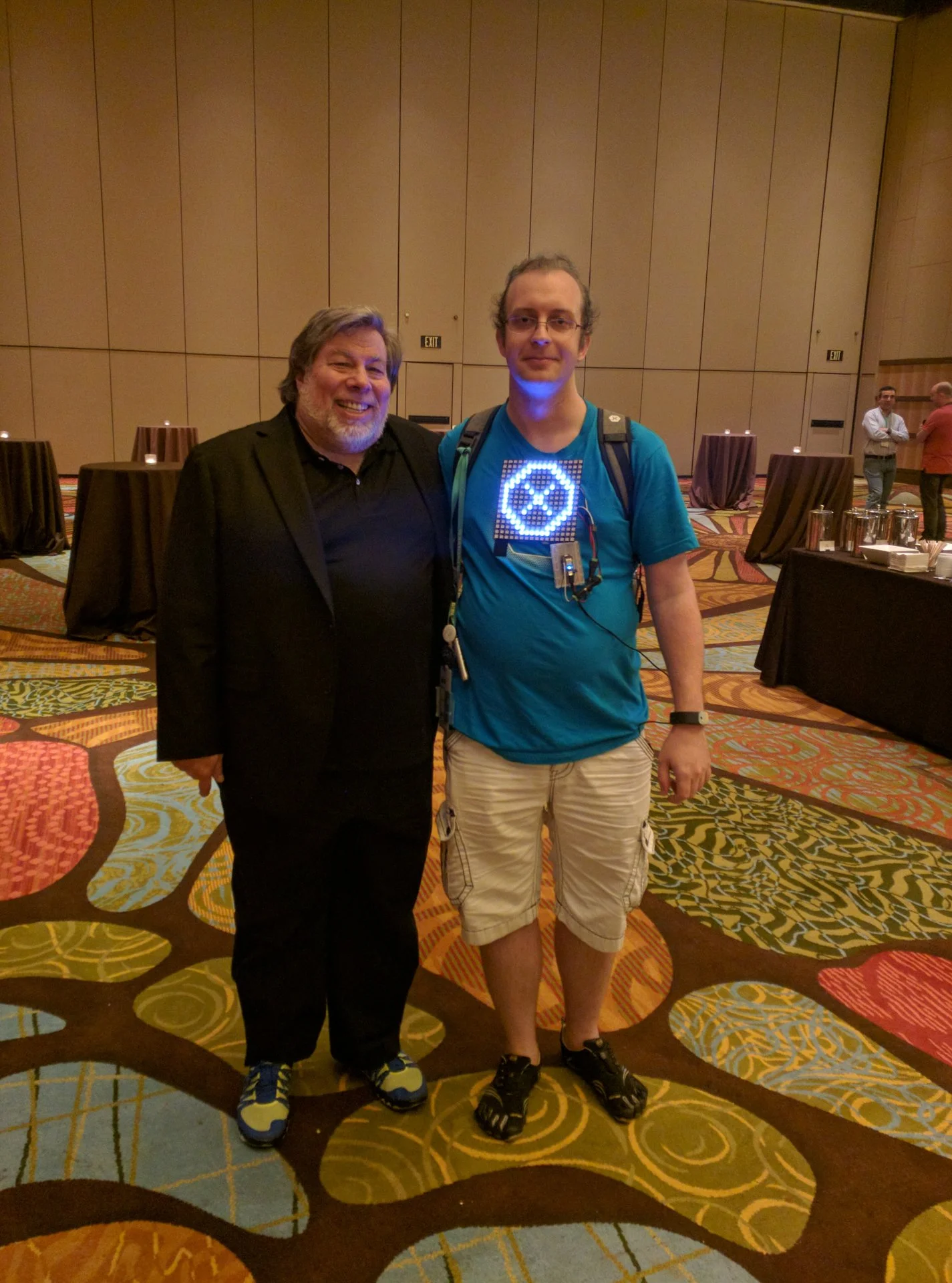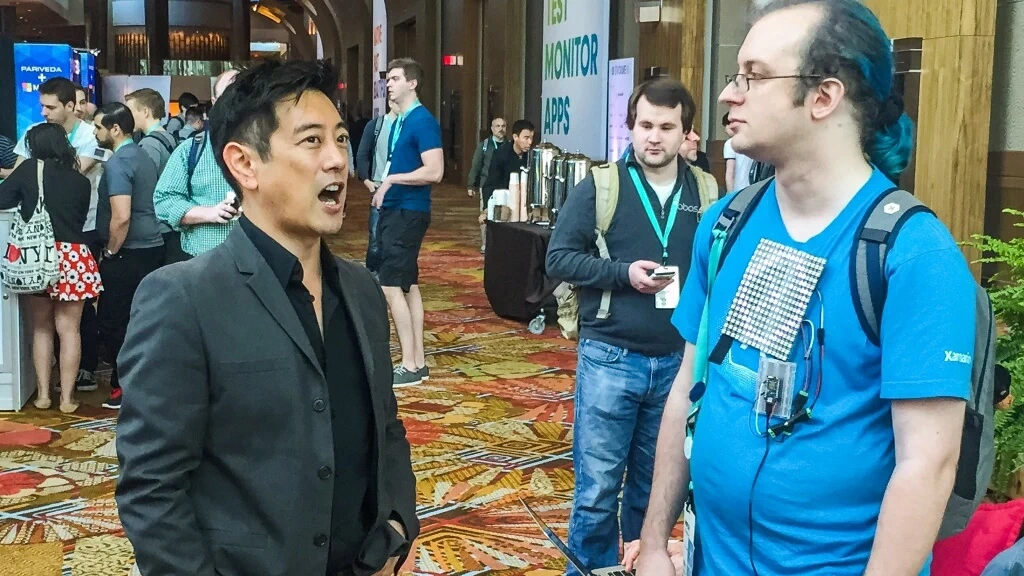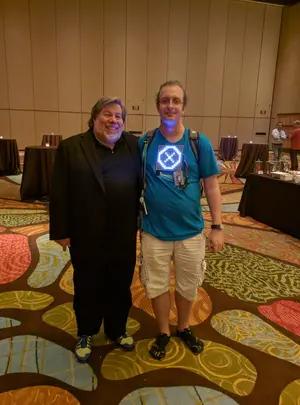Hello everyone, I'm Mitch. I Joined up after getting this link from another member of this forum and having some discussions with them about another on the spectrum they are co-existing with. Figured I would at least introduce myself and give a little rundown about who I am/short history of life experiences, etc. and try to give context the best I can before jumping into a discussion point (usually to get yelled at for mansplaining(no idea what this really is) or over explaining something to response of (yea Mitch, I got it), but that's a different topic of discussion. I currently hold the NT (Neuro Typical) Labels of Asperger’s, Dyslexia, & ADHD)
I was diagnosed with Asperger's at 7-8 years old after some other specialists who worked with kids on the spectrum noticed I had some behavior traits that warranted investigation. The diagnosis was made at the University of Wisconsin Weissman Center by a Dr. Iyama and confirmed by Dr. Woodard. At the time of diagnosis this is what was reported about me. “Currently, he is having difficulty with social skills with peers, lack of cooperation in doing assignments, becoming angry when asked to do things, and anxiety when attention is called to him. [Name Edited for privacy] is an autism specialist who happens to be working in Mitchell's classroom this year. She is there to assist other students, but has noted that Mitchell has the following: Highly developed language skills; very poor social interaction skills with peers; does not initiate interactions with peers and no real friendships developing; behavioral responses to social situations, often inappropriate; for example, he may think he is getting teased when he is not and then gets mad; can spell restaurant names but not easier words; can get stuck on topics, such as trains, weather and road construction, about which he is very knowledgeable; often takes things very literally; some use of peripheral vision and unusual hand movements when under stress; perfectionistic; concern and worry about future events. This worry extends to things at home and in the past, including dinosaurs, ghosts, violence and being chased. He seems to have a significant need for control of his environment.
Other behaviors that have been of concern to the family include Mitchell's need to have things done in a certain fashion; for example, his need for the same train story night after night, his preference for concrete discussions despite his excellent vocabulary, his unusual history of being "obsessed with boundaries" from infancy when he would not leave a blanket edge to later on when he would walk around the perimeter of an enclosed space. He had a tendency to compare everything to train tracks and understand the world in that fashion. He has difficulty recognizing other's feelings and the family feels that this distresses him and that he is unhappy some of the time.”
After the diagnosis I spent time working with a child Psychologist which was helpful though the years to my adult hood, where I find the support structure in the medical world just all but disappears. At 7th grade I was at the risk of dropping out of school as an IEP (Individual [not sure on the E word] Plan) (they have a different name in the school system for this now) was set up to assist me yet I would still get reprimands that contradicted what that plan said and outlined. The fact I was able to get into a project-based charter school saved me and helped me grow. There were still the hiccups we all face as adolescents growing in the world, but I could continue my education and graduate successfully. However, this path has made it harder for me to get into a University(4+ year degree) even after getting my associates degree(2 year degree).
In college, HS and even my adult life, I struggle with tasks that I find I already know before the class or task is presented but I must prove that I know it, or when material is presented in a format or context I cannot understand. (the former is a big one that caused grades to slip). This causes me to not be able to do a task even it means ill fail the class or lose a job. The issues with contexts, forming contexts and learning causes me to take longer on tasks that others find “easy”, “simple”, or “basic” so without a person to mentor me learning those concepts can be hard or almost impossible which I find interesting as we have a vast pool of words in our languages (English especially) yet the transmission of ideas beyond the basic things, objects, and concepts is still poorly done, and the introduction of allways on technology (phones, tablets, etc) that we carry with us and most NT’s do communication with means we have lost that ability to learn about social interactions and deal with social anxiety, something at the time, I needed to learn and get trained on to the point that most NT’s seem autistic socially to me and what I would do that was not considered to be “normal” is now the new norm. While I am glad that the training I got to help me adjust and improved my social interaction skills (eye contact is less difficult to do for me but I prefer to avoid it whenever possible, but know that if I can do it when I try to make points or mean something, has more of an impact to NT’s then when I do not, so I see it more as a tool in an arsenal of social tools to use when with others rather then something I must do 100% of the time)
Currently I struggle with finding work as a programmer (mobile app developer with Xamarin more specifically), I find I am better as a PM (Program/Product Manager), but I find that NT’s have some preconceptions that make it hard for me to get into the field such as:
I am currently am working on building a few different apps for myself or those on the specturm to use:
I also am in my 3rd year of being recognized as a Microsoft MVP (see my profile here:
I know this is a lot but that is a rough summary of me as a person and I look forward to talking with you all in other discussions. If you have any questions for me or thoughts on this, feel free to leave in this discussion below.
I was diagnosed with Asperger's at 7-8 years old after some other specialists who worked with kids on the spectrum noticed I had some behavior traits that warranted investigation. The diagnosis was made at the University of Wisconsin Weissman Center by a Dr. Iyama and confirmed by Dr. Woodard. At the time of diagnosis this is what was reported about me. “Currently, he is having difficulty with social skills with peers, lack of cooperation in doing assignments, becoming angry when asked to do things, and anxiety when attention is called to him. [Name Edited for privacy] is an autism specialist who happens to be working in Mitchell's classroom this year. She is there to assist other students, but has noted that Mitchell has the following: Highly developed language skills; very poor social interaction skills with peers; does not initiate interactions with peers and no real friendships developing; behavioral responses to social situations, often inappropriate; for example, he may think he is getting teased when he is not and then gets mad; can spell restaurant names but not easier words; can get stuck on topics, such as trains, weather and road construction, about which he is very knowledgeable; often takes things very literally; some use of peripheral vision and unusual hand movements when under stress; perfectionistic; concern and worry about future events. This worry extends to things at home and in the past, including dinosaurs, ghosts, violence and being chased. He seems to have a significant need for control of his environment.
Other behaviors that have been of concern to the family include Mitchell's need to have things done in a certain fashion; for example, his need for the same train story night after night, his preference for concrete discussions despite his excellent vocabulary, his unusual history of being "obsessed with boundaries" from infancy when he would not leave a blanket edge to later on when he would walk around the perimeter of an enclosed space. He had a tendency to compare everything to train tracks and understand the world in that fashion. He has difficulty recognizing other's feelings and the family feels that this distresses him and that he is unhappy some of the time.”
After the diagnosis I spent time working with a child Psychologist which was helpful though the years to my adult hood, where I find the support structure in the medical world just all but disappears. At 7th grade I was at the risk of dropping out of school as an IEP (Individual [not sure on the E word] Plan) (they have a different name in the school system for this now) was set up to assist me yet I would still get reprimands that contradicted what that plan said and outlined. The fact I was able to get into a project-based charter school saved me and helped me grow. There were still the hiccups we all face as adolescents growing in the world, but I could continue my education and graduate successfully. However, this path has made it harder for me to get into a University(4+ year degree) even after getting my associates degree(2 year degree).
In college, HS and even my adult life, I struggle with tasks that I find I already know before the class or task is presented but I must prove that I know it, or when material is presented in a format or context I cannot understand. (the former is a big one that caused grades to slip). This causes me to not be able to do a task even it means ill fail the class or lose a job. The issues with contexts, forming contexts and learning causes me to take longer on tasks that others find “easy”, “simple”, or “basic” so without a person to mentor me learning those concepts can be hard or almost impossible which I find interesting as we have a vast pool of words in our languages (English especially) yet the transmission of ideas beyond the basic things, objects, and concepts is still poorly done, and the introduction of allways on technology (phones, tablets, etc) that we carry with us and most NT’s do communication with means we have lost that ability to learn about social interactions and deal with social anxiety, something at the time, I needed to learn and get trained on to the point that most NT’s seem autistic socially to me and what I would do that was not considered to be “normal” is now the new norm. While I am glad that the training I got to help me adjust and improved my social interaction skills (eye contact is less difficult to do for me but I prefer to avoid it whenever possible, but know that if I can do it when I try to make points or mean something, has more of an impact to NT’s then when I do not, so I see it more as a tool in an arsenal of social tools to use when with others rather then something I must do 100% of the time)
Currently I struggle with finding work as a programmer (mobile app developer with Xamarin more specifically), I find I am better as a PM (Program/Product Manager), but I find that NT’s have some preconceptions that make it hard for me to get into the field such as:
- Autistics are only good with computers (False Assumption / Stereotype)
- The Best PM’s are Female as they have the ability to empathize with those they manage (False Assumption / Stereotype)
- Most Autism hiring programs that companies have are ones that focus on getting those on the spectrum into programming, engineering or Data Scientist roles, and any offerings outside of that fall into a category where you compete against other accessibility candidates (physical or neurological) rather then others on the spectrum.
I am currently am working on building a few different apps for myself or those on the specturm to use:
[*]Lvl Up Health: A app like myfitness pal or other health / food logging apps but trying to better integrate the info from wearables to show what your day looks like as well as be able to track meds, and times you take them. Adding all the to machine learning to help a person understand how their food choices, sleep the night before, social interactions, and when they were on time with their meds or which ones do X to the person to better understand what your bandwidth will be for the day as well if possible show how your current daily patterns might play our and when you may run out of bandwidth / spoons and need to reset. I am also doing this as a project that potential job prospects can see my work and a app that is as close to a production app as I can get while also having a code base I can create content to teach others from as far as learning about building apps in Xamarin forms or concepts that are a part of coding that more mimic the real world decisions made with coding what the limitations might be if I know or not, etc.
- Android Preview: https://install.appcenter.ms/users/mitch.muenster/apps/lvl-up-health/distribution_groups/public beta
- UWP (Windows Desktop) Preview: https://install.appcenter.ms/users/mitch.muenster/apps/lvl-up-health-01/distribution_groups/public beta
[*]An app like the Open BCI hardware app but one to use with people in floatation tanks to help generate a pattern of color on the ceiling based on what your brain is doing (different brain waves)
I also am in my 3rd year of being recognized as a Microsoft MVP (see my profile here:
https://mvp.microsoft.com/en-us/PublicProfile/5002013) where I have been working with the company to help bring in Neurodiversity support for all products (Mixer, Visual Studio, VSTS, Office & more) I also did a write up on Accessible Tech and being a Developer who falls under the Neurodiversity Category which you can find here: (https://blogs.msdn.microsoft.com/mvpawardprogram/2017/12/11/qa-mvp-mitch-muenster/) I also have created a Visual Studio theme that others who fall in the neurodiversity category could use to help with some processing issues when using the editor. (can be found as part of the Color Themes for Visual Studio add on https://marketplace.visualstudio.com/items?itemName=JustinClareburtMSFT.ColorThemesforVisualStudio under “Dark (Extra Contrast)”
I know this is a lot but that is a rough summary of me as a person and I look forward to talking with you all in other discussions. If you have any questions for me or thoughts on this, feel free to leave in this discussion below.




